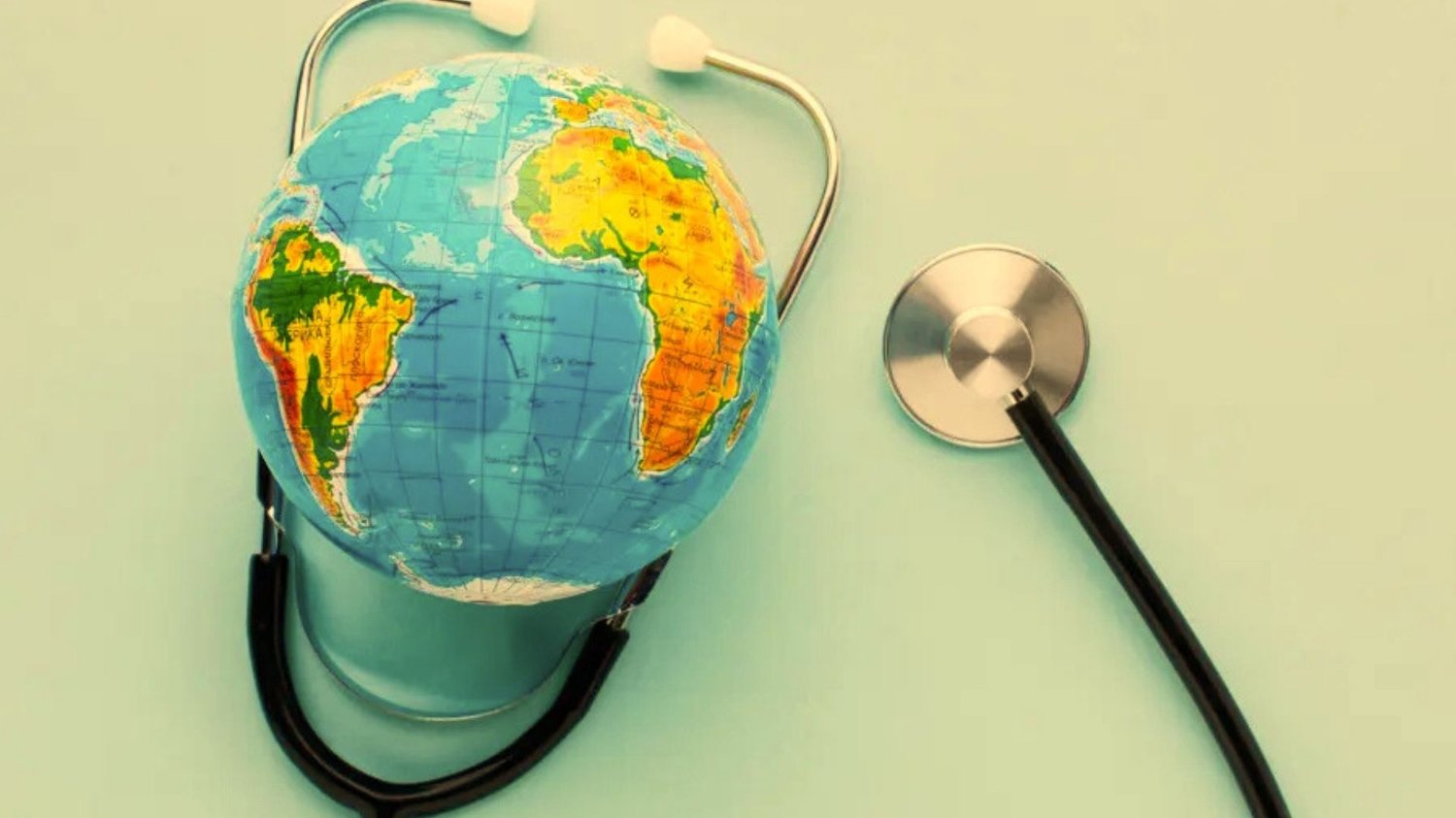
The new report The Lancet Countdown 2025 shows once again that the climate crisis is also a global health crisis. Heat waves multiply, deaths related to high temperatures and pollution increase, and infectious diseases expand to new regions. The poorest countries are the hardest hit, with less capacity to adapt and greater human and economic losses.
But beyond the diagnosis, the report reveals an underlying tension, while denouncing the devastating impacts of the fossil model, it maintains its hope in the same actors that fuel this crisis. The Lancet points out the private sector as directly responsible for the majority of greenhouse gas emissions and, at the same time, as a key player in reversing the climate catastrophe.
A bet that reflects the ambiguities of expert panels: The structural damage generated by the system is recognized, but it is trusted that capitalism itself will repair them, based on the demand of the civilian population.
The report, prepared by more than 120 academic institutions and international organizations, speaks of “record risks” for global health, but also of a growing economic burden and a “decline in productivity” due to extreme temperatures. However, capitalism does not work based on planning, its cost-benefit scheme is short-term and variables such as well-being and human health are not taken into consideration. Despite not sharing the approach, the report provides an important systematization of information to take into account and invites us to deepen the discussion with a critical eye.
An uneven map of damage
The data is compelling. Countries with the lowest Human Development Index (HDI) suffer the most severe impacts: they lose five to six times more work hours due to heat than rich nations, and heat-related deaths have increased more than 60% since the 1990s. On the other hand, very high HDI countries – the historically most responsible for emissions – concentrate access to mitigation technologies, disaster insurance and health infrastructure to adapt.
While in poor countries only 3% of total energy comes from clean sources, in high-income countries this percentage is around 13%. In the most vulnerable households, 88% continue to cook with polluting fuels. Only 2% of households in the most impoverished countries have access to air conditioning, a basic tool for adaptation to heat waves, while in rich countries it reaches 48%. Inequality is also reflected in research: three quarters of scientific articles on climate change and health are produced by institutions in rich countries, and only 9% study what happens in countries with low HDI.
A global health crisis
Global health is being undermined by the capitalist system but its impact is very unequal. Deaths from fossil fuel pollution grew by 13% in the poorest countries, while they fell by 40% in the richest. The protection gap is abysmal: barely 3% of losses from extreme events are insured in low-income countries, compared to 52% in those with very high HDI.
The Lancet demands “immediate and coordinated action” to protect health and blames fossil capitalism. However, the actions it contemplates are framed in green capitalism, that is, everything that can be integrated into the market—renewable energy, efficiency, green urban planning—while omitting the underlying issue: the ownership of natural common goods, technological dependence and the subordination of peripheral countries to extractive plunder.
The limits of corporate “self-regulation”
Over the past year, major fossil fuel giants—including Shell, BP, ExxonMobil and Chevron— reversed or postponed their decarbonization commitments. According to the report, the strategies of the world’s 100 largest oil and gas companies project production a 189% superior to that compatible with 1.5°C warming by 2040. Since the entry into force of the Paris Agreement, the total production planned by these companies has grown by more than 40%.
Far from decreasing, bank financing to the fossil sector increased by 29% in 2024reaching $611 billion, while the Net Zero Banking Alliance lost more than a fifth of its asset coverage following the withdrawal of US banks. These are figures that show how the “energy transition” remains subordinated to the immediate profitability of capital.
The report also exposes a striking contrast. While employment in renewable energy grew by 18% in 2023the fossil sector slightly reduced its workforce. But this job transition coexists with a sustained expansion of oil and gas production. At the same time, investment in coal assets that will become disused (stranded assets)—that is, those that will lose value because they are incompatible with climate goals—increased rather than decreased.
For health that is not a commodity
The Lancet points out a decline in corporate attention to the link between health and climate change: Only half of companies reporting to the UN Global Compact mentioned it in 2024, a significant drop from the previous year. However, the text highlights “positive signals,” such as surveys in which executives say they support a rapid energy transition.
Once again, the tension that runs through the report can be seen: on the one hand, it shows with hard data the lack of real action by large corporations; On the other hand, it insists that it is they—along with banks, investment funds and private philanthropy—who must lead the solution. A tension that crosses today not only scientific reports, but all politics that addresses the climate crisis.
It is important to recognize that the environmental crisis is also a health crisis, but health cannot be just another number in the accounting of the “costs” of States or an externality of companies. We must prioritize health and life over private profit, but to do so we need a radical transformation.
He Countdown 2025 offers valuable data to understand how global warming affects human health and widens the gaps between imperialist and dependent countries. These same data should be used to discuss another strategy. Given the impossibility of States and capital sectors offering a structural solution within the same rules that led us to this crisis, it becomes essential to question the accumulation model that originates it and confront it from an anti-capitalist perspective.
Source: www.laizquierdadiario.com

